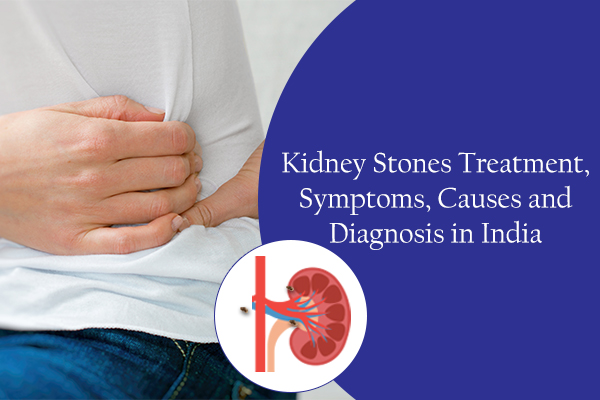Kidney stones as can be understood from the name are solid masses of crystals originating in the kidneys of human beings. But the stones can actually develop at any place along the urinary tract including the kidneys, ureters, urethra and the bladder.
Types of Kidney Stones
The types of kidney stones depend upon the crystals by which they are made up of, all of which are listed below.
- Calcium stones which are the most common ones
- Uric acid stones which are more common in men than women
- Struvite stones commonly occurring in women with UTIs
- Cystine stones occur in both gender but are very rare
Signs and Symptoms of Kidney Stones
Kidney stone symptoms and signs are quite important to be noticed as well as understood so that the most appropriate treatment can being at the right time. Some of the important signs and symptoms are as follows.
- Sharp shooting pain in the belly, back or the side which becomes unbearable at times is an important sign of kidney stones. For intense pain on a regular basis, immediate visit to the specialist is recommended.
- Sensation of burning or pain at the time of passing is another of the very common symptom of kidney stones.
- The urgency of urination with an increased frequency is a noticeable sign in this case.
- Presence of blood in the urine is another common symptom. The urine might appear red, pink or brown.
- Smelly or cloudy urine is also an indicator of kidney stones.
- The volume of urine passed is very low but the need remains.
- People with kidney stones experience nausea and vomiting.
- Fever and chills are also indicators of infection in kidney or in other parts of the urinary tract.
Treatment of Kidney Stones
Kidney stone treatment plan is formulated according to the type of kidney stones which usually includes any of the following.
- Medication is usual way with which the treatment is started. Pain relieving medications and some antibiotics are used for treating the infection.
- Lithotripsy is an extracorporeal shock wave treatment which makes use of sound waves for breaking up the larger stones enabling them to easily pass through the ureters into the bladder.
- Tunnel surgery is another common method of treating the kidney stones in which the stones are removed with the help of a small incision in the back of the affected individuals.
- Ureteroscopy is the procedure used when a stone is stuck in the bladder or the ureter and the surgeons use a device known as ureteroscope for the removal of the kidney stones.
Related: Best Kidney Transplant Hospital in India Gujarat
The treatment of the kidney stones depends on the stones as well as upon the condition of the affected individuals so that the most appropriate treatment can be imparted.


